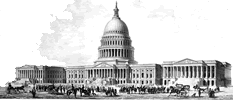Updates to this section of the United States Code
Title 18 > Part I > Chapter 47 > Section 1030
§ 1030. Fraud and related activity in connection with computers
Title 18 of the US Code as currently published by the US Government reflects the laws passed by Congress as of Jan. 3, 2007, and it is this version that is published here.
However, the long codification process by The office of the Law Revision Counsel (LRC) starts very quickly after any new legislation with "classification" to corresponding US Code sections. They put these in "Classification Tables" and make them available to us all at http://uscode.house.gov/classification/tables.shtml
The table below lists the classification updates for this section, since Jan. 3, 2007. Updates to a broader range of sections may be found at the update page for containing chapter, title, etc.
| US Code | Description | Session | Public Law | Statutes at Large | |
|---|---|---|---|---|---|
| Section | of Change | Year | Law | Section | Volume STAT. Page(s) |
| 18 USC 1030 | 2008 | 110-326 | 205-208 | 122 STAT. 3563 | |
| 18 USC 1030 | 2008 | 110-326 | 203, 204(a) | 122 STAT. 3561 | |
How to use this table
An empty table indicates that we see no relevant changes listed in the classification tables since Jan. 3, 2007. If you suspect that our system may be missing something, please double-check at http://uscode.house.gov/classification/tables.shtml
Multiple entries for a section are listed most recent first, within the section.
The Session Year indicates which session of Congress was responsible for the changes classified. The Congress number forms the first part of the Public Law number; each Congress has two sessions.
Abbreviations used in the Description of Change column:
- An empty field implies a standard amendment.
- "new" means a new section or new note, or all new text of an existing section or note.
- "nt" means note.
- "nt [tbl]" means note [table].
- "prec" means preceding.
- "fr" means a transfer from another section.
- "to" means a transfer to another section.
- "omitted" means the section is omitted.
- "repealed" means the section is repealed.
- "nt ed change" and "ed change" -- See the Editorial Classification Change Table (http://uscode.house.gov/classification/edct.pdf).
The Public Law field is linked to the development of the law in the Thomas system at the Library of Congress.
The Statutes at Large field is linked to the text of the law, in the context of its volume of the Statutes at Large, at the Government Printing Office. Please note that it takes a while for these pages to get posted, so for very recent legislation, you need to look at the "enrolled" version at the Thomas site (PubL link)
The Statutes at Large references have been rendered in the format used as page numbers in the Public Law web pages to which we link, to facilitate copy-paste into browser "find on this (web) page" tools. We are still working on a more direct link facility.
For serious comparison work, we suggest copying all or a portion of the Public Law text into your favorite text editor, for convenient content traversal and window control.
Sections with change type "new" are a special case, still under development. All are now listed, at the title level only.
You will find that occassionally a specific update you notice in a Public Law listed in a classification table will already have made it into the Code. We assume this is an artifact of the LRC edit process. The LII does not edit the LRC content.
The most recent Classification Table update that we have noticed was Tuesday, March 3, 2009
General References
See http://uscode.house.gov/ for explanations about the US Code from the folks who put it all together at the LRC. Look for information about what it is and is not, which titles are "positive law", the schedule of Supplements, etc. Under "download" you can find the source data we use here (GPO locator files) as well as PDF files that look just like the paper books (watch out for file sizes).
See http://thomas.loc.gov/ to look for changes that have not yet made it into the classification tables.



